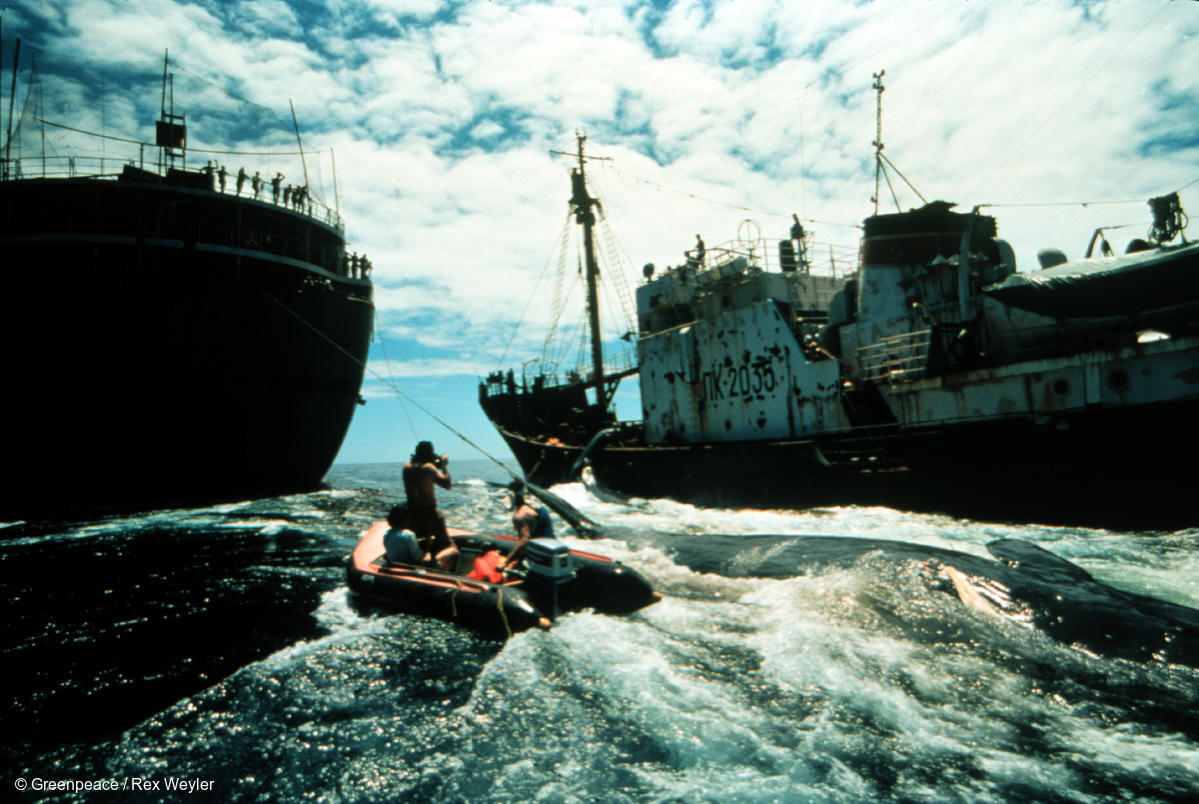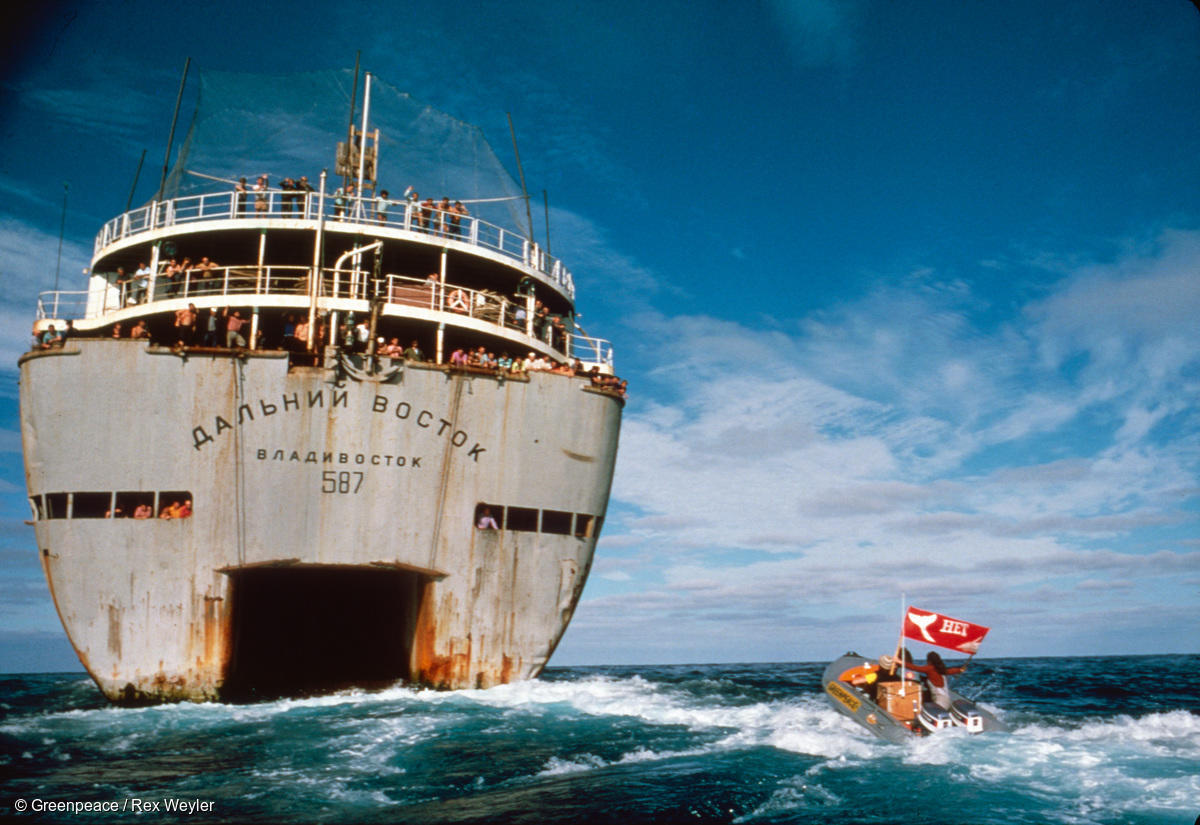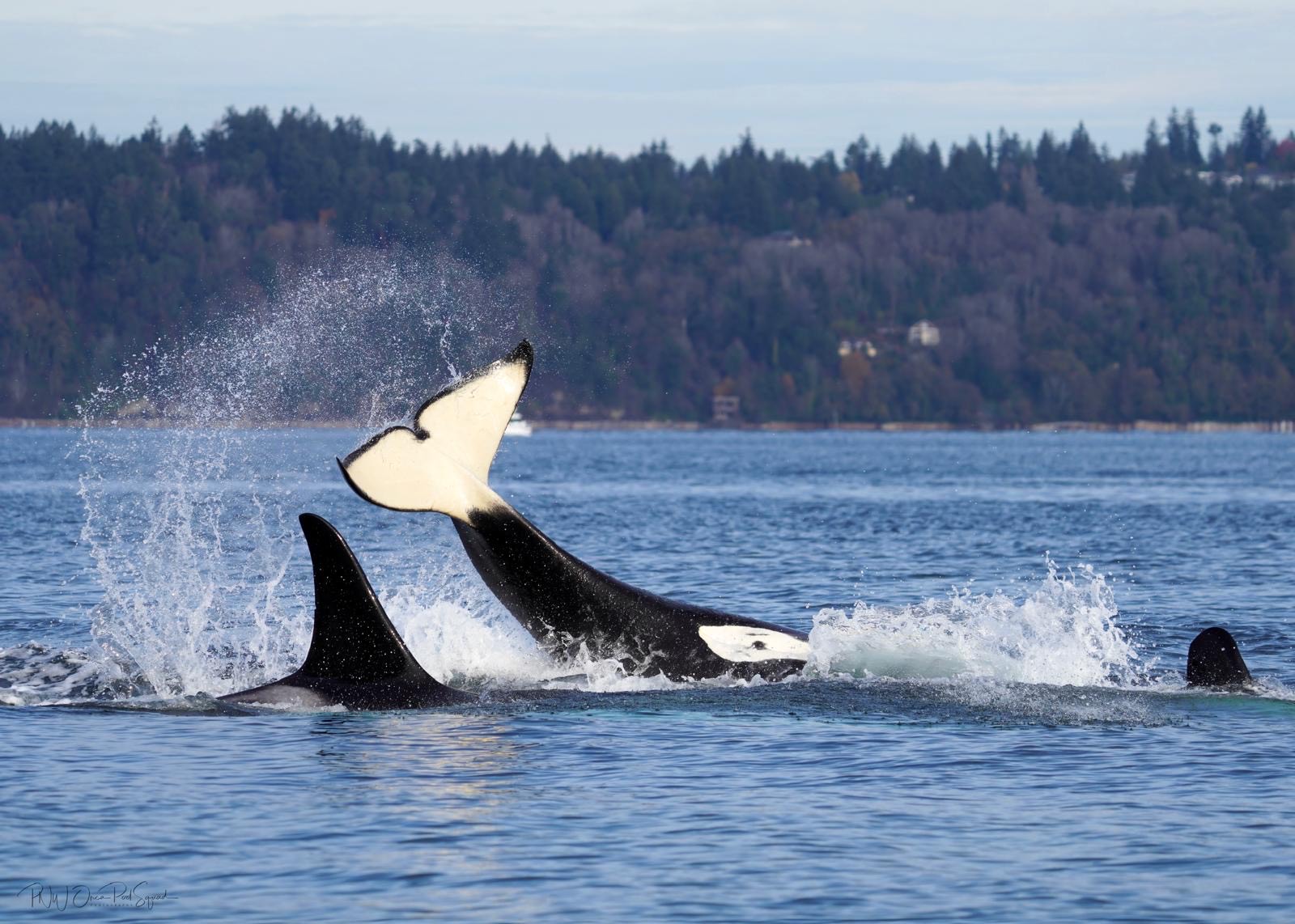Book Discussion: Red Leviathan

I, like all of you reading Currents (I assume), have an affinity for the sea. Its vastness humbles me, its power inspires me, and the life that brims beneath it opens up my imagination to the seemingly infinite ways an organism can experience life on Earth.
The experience that captivates me most is that of a whale. Traversing the globe with their kin, oscillating between the poles and the tropics, living with the seasons, bellowing songs along the way, through it all with sentience. The mysticism of whales is now obvious, trite, even. But it was only sometimes perceived this way.
For centuries, whales were largely viewed as an economic resource, a means of maritime power, and a beast to conquer. The knowledge that whales are intelligent, complex social creatures, capable of having memories and lived experiences—and the realization that the world’s great whales were becoming increasingly precious and imperiled—offered an alternate view. As a result, popular pressure and the environmental movement led to the moratorium on commercial whaling in 1987.
In an interesting twist, it was the very people who imperiled the whales in the first place whose anecdotal and scientific records would shape our understanding of whales as sentient lifeforms: the whalers themselves and the scientists who informed their conquests.
In Red Leviathan, environmental historian Ryan Tucker Jones explores this contradiction, chronicling the recently declassified history of Soviet whaling alongside scientific contributions that inform modern cetology and conservation efforts.

The Soviet Union’s industrial whaling fleet killed over half a million whales between its maiden whaling voyage in 1932 and the fall of its final harpoon in 1987, but Russia’s history with whaling begins long before the days of Stalinist industrialization. Despite possessing the fourth longest coastline in the world, Russia is a historically land-based power. Red Leviathan outlines an emasculating early history of Russian whaling, as the nation watched foreigners reap the benefits of their seas it could not conquer, despite repeated attempts to use whaling as a stake for a seat at the table among world powers.
World War II offered the Soviet Union (1922-1991) the prospect of this seat, success in post-war Antarctic whaling became not only a means of securing their spot at the table but of meeting the USSR’s demand for constant economic growth and production increases. It would be its own nation’s internal demand for a constant increase in numbers, quotas, and profits that would ultimately lead the USSR to illegally kill tens of thousands of whales post-war. On the flip side, the data-driven Soviet culture also led to the accumulation of vast scientific knowledge that would be used to bring whales back from the brink of extinction induced in large part by Soviet greed.
I went into this book knowing a lot about whales, and very little about Russian history. Jones pairs his thorough research of Soviet whaling with exceptional storytelling, allowing readers like me to easily follow their whaling saga through distinct periods and cultural regions. Conversely, I think that history buffs who know very little about whales would enjoy this read as well. In a time of reckoning with our relationship with the environment, environmental history is becoming an increasingly important field for us to turn to, and a genre that readers are increasingly interested in. I was impressed by Jones’ ability to mix dense history with dense scientific data while intertwining his research with anecdotes and personal experiences. The book reads as a living narrative with a developed arc that hints at twists and turns along the way, keeping readers engaged throughout.
“In a time of reckoning with our relationship with the environment, environmental history is becoming an increasingly important field for us to turn to, and a genre that readers are increasingly interested in.”
Jones was able to craft a compelling, humanizing account of such a heinous history, through the lens of a regime that is not thought of fondly by the Western world. I found myself in agreement with the Bolshevik belief in avoiding ecological destruction through “reining in private enterprise and by using science to guide economic activity,” (p.23); I would learn that the Bolshevik Revolution was the birth of communism on the world stage (like I said, I am not a history buff). Furthermore, Jones was able to capture both the allure of whaling and the whaler’s unexpected love and fascination for whales. He described the whalers as adventurous, and much like myself, called by the sea. Their journal entries reflect a curiosity about whales and their societies, which they observed from a front-row seat. Less often, whalers’ accounts show emotional appeal, with several instances of condemning those who kill mothers and calves or reflecting on the apparent show of sadness and agony coming from the whales during the hunt. My point is, that it takes a great writer and skillful framing to get me to agree with those behind the Red Terror, and to be understanding of whalers.
An idea I could not fully get behind, though, was Jones’ constant attempt to frame Russians as conservationists. Prolific scientists, sure, but honestly caring about ocean conservation? I don’t buy it, and I’m not sure Jones does, either. He discusses the “forest question” that permeated the Russian consciousness as they started to realize the loss of nature associated with their economic growth, leading to some of the world’s first nature preserves, but I was not able to see a link between their concern for changing landscapes and a desire to also conserve marine environments. If anything, the general frustration and lack of appreciation for its vast coastlines—as described by Jones—seems to undermine any idea that the Russians had a vested interest in protecting its seas. Even in the instances where Jones cites Russians speaking out against the depletion of whale stocks due to capitalist greed, these statements seem to be masking their failure to dominate the industry in the 19th century. They were described as finding the capitalist nations’ lack of restraint as distasteful, yet their Bolshevik ideals of a sustainable economy were thrown out the window the instant the Soviet Union enjoyed economic prosperity and technological industrialization, allowing it to be competitive at a global scale. But, to be fair, the fleeting and fluctuating nature of Russian conservation could easily be attributed to the volatile history of the Soviet Union.

Red Leviathan is not simply a doomsday account of one of the greatest tragedies in our ocean’s history; it also is a story that left me with a lot of hope and inspiration. The book describes the important role activist group Greenpeace played in finally bringing an end to commercial whaling. Greenpeace is an environmental activist group born out of the counterculture of the 1960s and 70s, that utilized shocking film and imagery of their various confrontations to help guide a near-global consciousness shift surrounding our relationship with our natural resources, particularly that of whales. The founder of the organization referred to their powerful imagery as “mindbombs.” An image included in Red Leviathan shows the Greenpeace hippies’ small zodiac confronting the monstrous Russian whaler, its rusty mouth agape and its enormity fueled by an insatiable desire for production. This mind bomb represents the threat that incomprehensible industrial power poses to our humanity, and it was effective in recruiting people to advocate for the interest of whales, just in time to allow for the recovery of many of the species decimated by this dark history.

It is gutting to think that, without whaling, our oceans might not feel so empty. Selfishly, it infuriates me that I will never be able to enjoy an ocean not changed by the Anthropocene. Even more selfishly, I envy the whalers for their intimate relationship with my favorite creatures. It seems incomprehensible to me that those who knew our great whales best, who spent the most time observing their societies, were also the ones who destroyed them. It’s hard for me to imagine that the oceans were not brimming with whales at whaling’s inception, considering the Soviets’ half a million kills in the latter half of the 19th century alone only accounted for 40% of take during that time. Before 19th-century whaling, whales were already being removed from our oceans by the tens of thousands. But this knowledge makes their current recovery all the more remarkable, and speaks to both nature’s ability to heal and humanity’s ability to facilitate that healing, righting our wrongs from a misguided past.
“It is gutting to think that, without whaling, our oceans might not feel so empty.”
In modern times, the population of blue, sei, humpback, and sperm whale stocks are all increasing following their near decimation from commercial whaling. This positive trend is due to the cessation of commercial whaling. Since the release of the scientific data collected during the heyday of commercial whaling. Russian cetologists are seen to be among the first to recognize the complexities of whale society, to map whale migration routes, outline the delineations between local stocks and overall populations, and understand their reproductive capacity. Furthermore, Russians pioneered the management of Indigenous sustenance hunting, advocating for the continued allowance of whale take for those who have traditionally relied on the creatures for food and beyond. Perhaps even more impressive is the Soviets’ humility in admitting to years of cheating under the International Whaling Commission (IWC), volunteering the truth about its 20th Century whale catches to the Commission to more accurately inform conservation efforts, and hopefully inspire other nations hiding data to do the same.
Red Leviathan is a story of resentment, revenge, and repentance. If you are looking to better understand the history of whales, the history of the Soviet Union, or our relationship with the environment overall, I would recommend this book. Jones challenges his readers to understand the multifaceted nature of a saga we too easily see as black and white and provides an inspiring example of humanity’s ability to change course before it’s too late. Above all, Red Leviathan outlines the astounding resilience of the whales, their ability to inspire a love of nature, a sense of adventure, and a mindset that the Earth is not ours for the taking, but a home we share with complex and deserving creatures great and small.